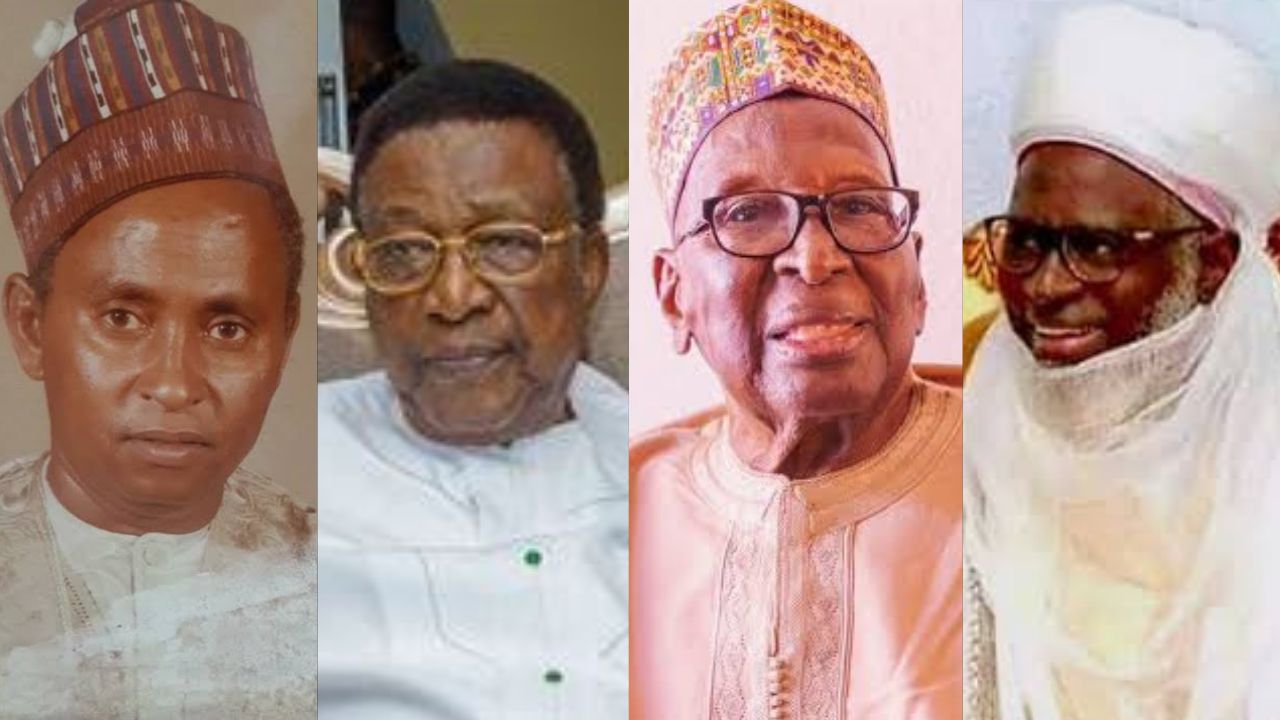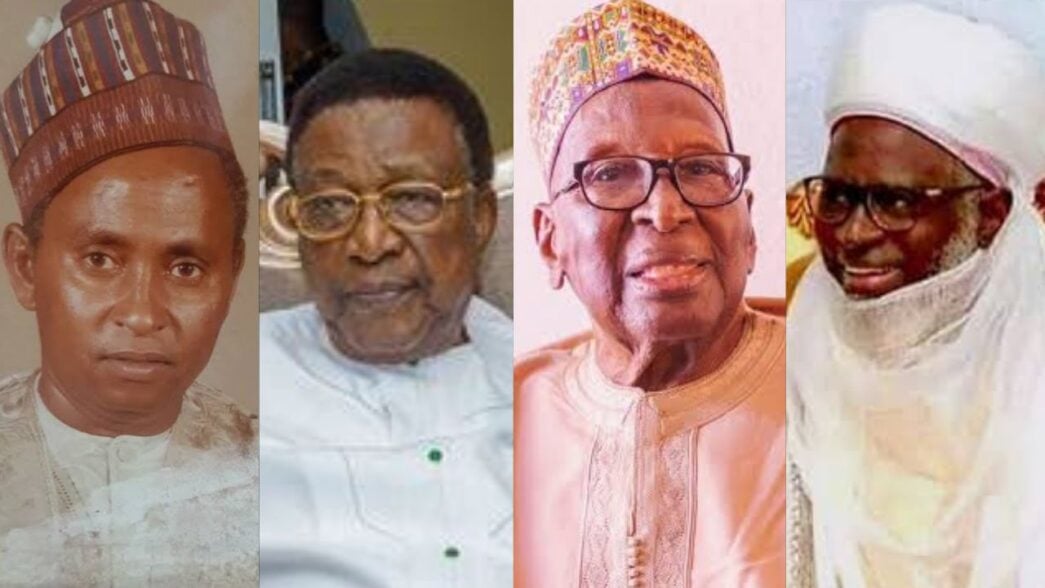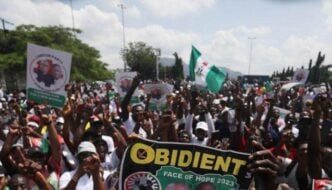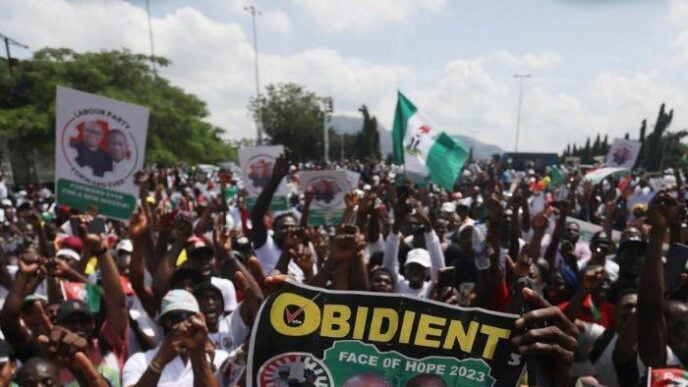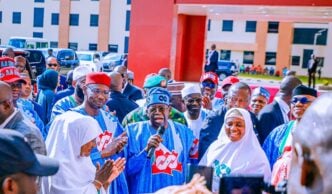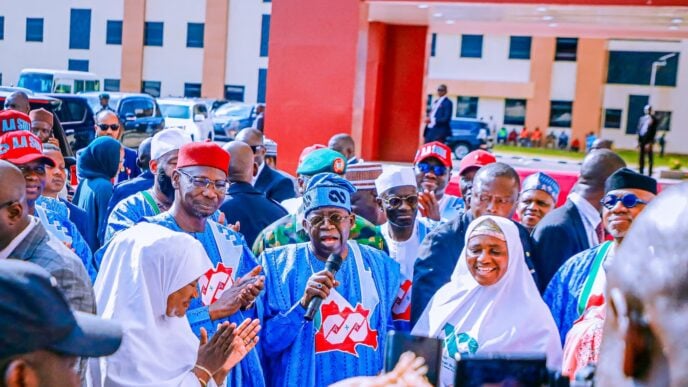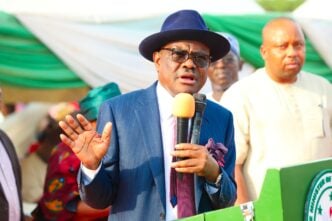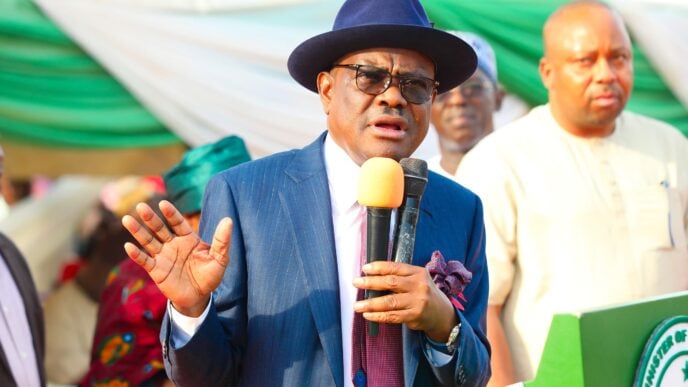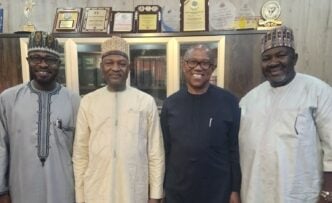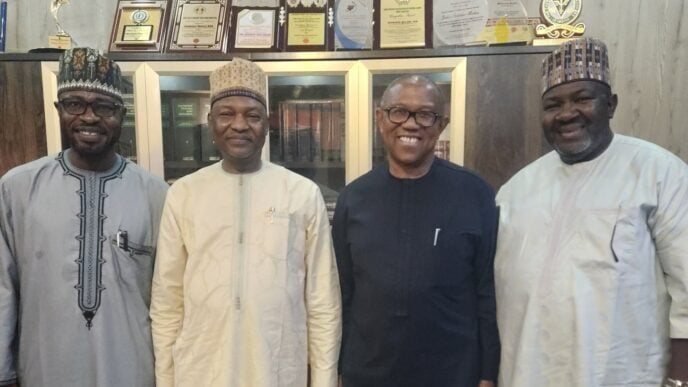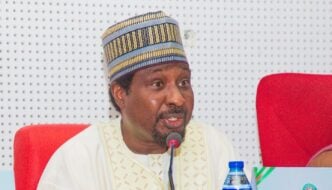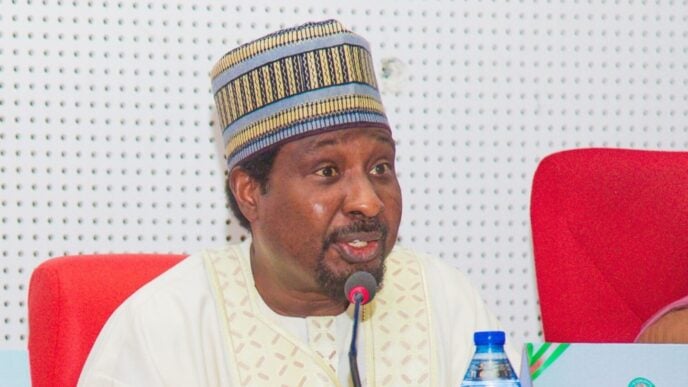Asheik Jarma, Jim Nwobodo, Bamanga Tukur and Mohammed Awwal Ibrahim
On Wednesday, Cornelius Adebayo, a second republic governor of Kwara state and former minister of communications, died at the age of 84.
Adebayo succeeded Adamu Atta as Kwara governor in 1983, but the former’s tenure was cut short by a military coup. Adebayo’s tenure lasted for three months — between October to December, 1983, when the second republic ended.

THE SECOND REPUBLIC GOVERNORS
At the start of the second republic on October 1, 1979, nineteen men were sworn in as governors across the then 19 states of the federation. After 13 years of military rule, a new democratic order was ushered in.
Advertisement
The watershed period effectively saw Nigeria shift away from the parliamentary system adopted during the early days of independence, and a US-style presidential system was embraced, supported by a multi-party democratic framework.
They were the first elected state executives of the second republic, tasked with rebuilding the ruins of the civil war and ushering in civilian rule under the newly enacted 1979 constitution.
The 19 elected governors were Bola Ige of Oyo, Ambrose Alli of Bendel, Aper Aku of Benue, Mohammed Goni of Borno, Clement Isong of Cross River, Sam Mbakwe of Imo, and Balarabe Musa of Kaduna.
Advertisement
Others were Adamu Atta of Kwara, A. Tatari Ali of Bauchi, Abubakar Barde of Gongola, Solomon Lar of Plateau, Shehu Kangiwa of Sokoto, Bisi Onabanjo of Ogun, Melford Okilo of Rivers, Michael Ajasin of Ondo, Mohammed Rimi of Kano, Lateef Jakande of Lagos, Jim Nwobodo of Anambra and Awwal Ibrahim of Niger.
However, four of them were out of power before the conclusion of their tenure.
Shehu Kangiwa fell during a polo match in 1981 and died, and was succeeded by Garba Nadama.
Balarabe Musa was impeached by the Kaduna assembly, making him the first Nigerian governor to be removed through that process. Abba Musa Rimi, his deputy, took over.
Advertisement
As the 1983 elections approached, Mohammed Rimi resigned from office in protest over internal party issues and was replaced by Abdu Dawakin Tofa.
Abubakar Barde of Gongola also stepped down and was succeeded by Wilberforce Juta.
The 1983 general election ushered in a wave of new governors, with nine of the 1979 class failing to secure re-election.
The governors who were not reelected were Bola Ige, Ambrose Alli, Mohammed Goni, Abubakar Rimi, Adamu Atta, Wilberforce Juta, Abba Musa Rimi, Jim Nwobodo, and Clement Isong.
Advertisement
They were replaced by Omololu Olunloyo of Oyo, Sabo Bakin Zuwo of Kano, Asheik Jarma of Borno, Cornelius Adebayo of Kwara, Christian Onoh of Anambra, Samuel Ogbemudia of Bendel, Don Etiebet of Cross River, Bamanga Tukur of Gongola, and Lawal Kaita of Kaduna.
In total, 32 men held governorship positions at various points between October 1979 and December 1983, during the four years and three months that Nigeria’s second republic existed.
Advertisement
A military junta led by former President Muhammadu Buhari toppled the democratic process once again and ended the era.
Only four of the 32 governors during that period are still alive.
Advertisement
The remaining four are Jim Nwobodo of Anambra, Awwal Ibrahim of Niger, Bamanga Tukur of Gongola and Asheik Jarma of Borno.
THE LAST FOUR STANDING
Advertisement
1. NWOBODO

AGE: 84
THEN: A charismatic businessman turned politician, Nwobodo became governor of Anambra under the Nigeria Peoples Party (NPP).
He was known for reforms in education, especially the establishment of Anambra State University of Technology (now ESUT).
NOW: Nwobodo is still active as an elder statesman and occasionally makes public appearances.
He lives a relatively quiet life in Enugu and has been involved in various reconciliation efforts within the south-east political bloc.
He also served as a senator, sports minister, and a voice for Igbo political inclusion — though many recall his rivalry with Nnamdi Azikiwe as one of the reasons for the NPP’s fracture.
2. IBRAHIM
AGE: 84
THEN: The first civilian governor of Niger state and a scion of a royal family, Ibrahim ruled with moderation and was respected for balancing tradition with modern governance.
NOW: After the military coup, he returned to traditional leadership. In 2000, he was reinstated as the Emir of Suleja, a title he holds to this day.
Although he has largely stepped away from active politics, his palace remains a political hub, especially during election cycles. He is often consulted by federal and state officials on northern political dynamics.
3. TUKUR
Now aged 89, the ex-governor of the old Gongola state and former national chairman of the Peoples Democratic Party (PDP) has largely stepped back from active politics.
He has not been publicly seen at recent political gatherings or events.
During his time as PDP chairman, Tukur sought to reassert party authority, echoing the influence once held by the National Party of Nigeria (NPN).
However, internal resistance — particularly from some powerful governors of the time — eventually led to his resignation. He was succeeded by Ahmadu Muazu, a former Bauchi state governor.
4. JARMA
Asheik Jarma served as the civilian governor of Borno state from 1979 to 1983, under the Great Nigeria Peoples Party (GNPP) during the second republic.
A respected figure from the north-east, Jarma was known for his calm, strategic leadership and his focus on rural development and education in one of Nigeria’s most challenging regions at the time.
Following the collapse of the second republic in 1983, Jarma remained politically active behind the scenes.
In the 1990s, as Nigeria prepared for a transition back to civilian rule, he became one of the founding members of the Peoples Democratic Party (PDP).
His political involvement helped shape the party’s early structure and appeal in the north, particularly in Borno and neighbouring states.
From sweeping education policies to radical economic reforms, the second republic governors were more than politicians; they were pioneers of Nigeria’s early democratic experiment.
